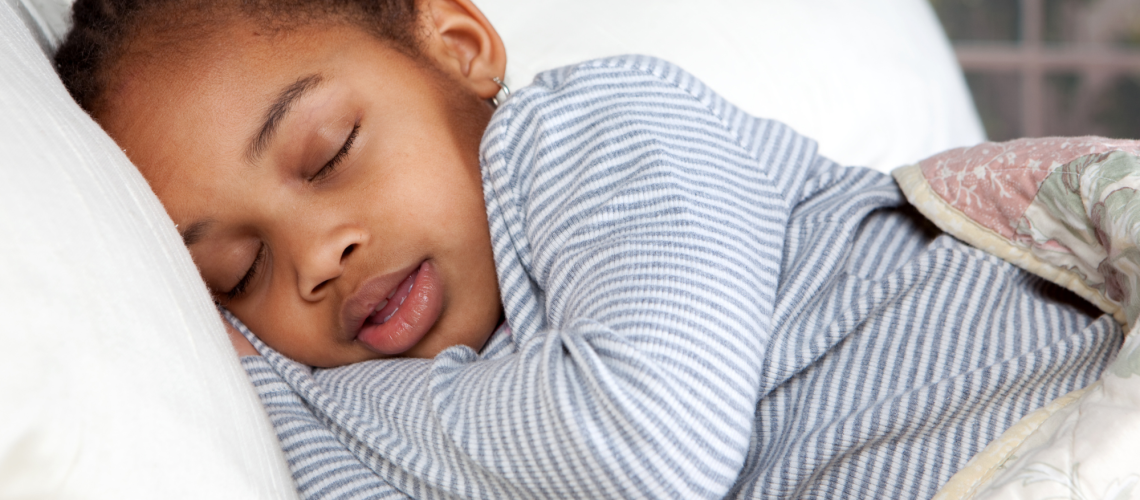By Sarah Bibi Patel – Good Night Consultant
Whilst we are baby and toddler sleep experts, there has been an increasing state of concern for the sleep hygiene of older children. Whilst their sleep needs are not as stringent as that of a baby, sleep is still vitally important for their development and well-being.
Why is sleep so important?
Obtaining healthy sleep is important for BOTH the physical and mental health of your child. Ask a chronically sleep-deprived person how that lack of sleep affects their temperament and ability to tackle difficult tasks! When your child is well rested, they are more likely to be settled and happy. Good quality sleep helps them to concentrate, remember things, and manage their emotions better. Getting enough sleep also enhances your child’s immune system, thus reducing the risk of infection and illness. Sleep is something your child will need for the rest of their life. If you as a parent focus on teaching them good sleep hygiene from this young age, it will be a skill they will use for the rest of their life (literally!).
What are your child’s sleep needs?
Between the ages of 5 and 11 years, your child will need between 9 to 11 hours of night-time sleep. You will calculate their bedtime based on what time they need to wake up in the morning. For example: If your child needs to be up by 6 am every morning, they need to sleep by 8 pm latest to ensure that they get a 10-hour window of sleep. At this age, it is not necessary for your child to have a nap in the day.
What is sleep hygiene?
We often talk about implementing good sleep hygiene, and whilst it sounds fancy, it is actually really simple. It means creating a consistent daily AND bedtime routine that promotes consistent uninterrupted sleep. As parents, our role is to help create such routines that build a foundation of good sleep for our children.
How can you ensure your child has good sleeping habits?
- Caffeine
Good sleep hygiene begins in the day, with the consideration of your child’s food and drink intake. Caffeine is a stimulant that prevents sleep, and can cause your child to stay awake for longer and to settle down to sleep less easily. Caffeine is present in drinks such as tea, coffee, cola, energy drinks and fizzy pop. If your child drinks any of these, try to limit their intake and avoid them altogether after lunchtime.
- Food
Eating a large meal before bedtime can prevent sleep. Consider the best time to eat your dinner meal. If your child has an early bedtime, ensure that a large meal is not being eaten directly beforehand. On school nights, it might be preferable for your child to eat earlier, but you can still all have family meals over weekends and during holiday periods.
- Exercise
Children may have difficulty falling asleep if they have been inactive throughout the day. Encouraging your child, where possible, to undertake sports and to play outside can help to burn off energy and enable them to feel tired at the end of the day. Even if your child is not very ‘sporty’, just going for a walk in the fresh air can be helpful. However, exercise should be avoided directly before bedtime, as the heat created by the muscles during exercise can prevent your child from falling asleep.
- Environment
Your child’s sleeping environment should be a place where they feel safe and secure, but it should also be a place to sleep and not play. There are several ways in which the sleeping environment can be adjusted, but it will depend on the needs of your child (and any other children sharing the room).
Some children may find that the use of a nightlight can make them feel safe – others may sleep better in total darkness. Room temperature and noise level should be adjusted, where possible, to ensure your child is comfortable to fall asleep. Try to keep the temperature of the room between 21°C and 23°C; as humans, we sleep better in a cooler environment than a hot one.
Your child’s bedroom should not contain things that distract them from sleeping. If you find that your child is being stimulated by toys, it may be best to remove these from the room before bedtime, or to keep toys in a different area of the house.
- Routine
Having a bedtime routine and a set bedtime can help your child to understand what to expect and how they should behave. A routine can start around 30 minutes before bedtime, and can include activities to help winding down, such as a warm bath/shower or reading a story. This can be an opportunity for families to connect and spend time with each other.
Sticking to a set pattern each night will help your child to settle before bed and give them the time to calm down before sleeping. Going to the toilet as the last task before getting into bed can also help prevent your child from needing to get up in the night time.
- Technology
The use of electronic devices (such as televisions, mobile phones and tablet computers) close to bedtime can prevent your child from settling to sleep. This is because these devices produce light that suppresses natural hormones in the brain that cause sleepiness. We recommend that the cut-off time for screens be two hours before bed.
Ideally, these devices should be removed from your child’s bedroom to create an environment that your child associates with sleep.
If your child uses these devices to help them fall asleep, consider replacing this routine with a bedtime story instead.
All of the above are small changes which you can help your child to implement, but will yield effective and long-lasting results when it comes to better sleep!
Resources:
#sleeptraining

